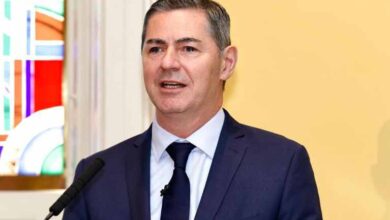Christiane Sanderson: Leading Voice in Trauma-Informed Counselling and Survivors’ Advocacy

Christiane Sanderson is a name that resonates deeply in the arenas of trauma, counselling, and the support of survivors of abuse. For decades, she has served as a beacon of knowledge, combining scholarly rigour with practical wisdom in her work with individuals, professionals, and institutions confronting the devastating impacts of sexual violence, shame, and betrayal.
Who Is Christiane Sanderson?
Christiane Sanderson is a UK-based psychologist, trainer, author, and consultant whose reputation is built on more than thirty years’ experience in the field of trauma and counselling. She has lectured at the university level, provided training for governmental and non-governmental bodies, and authored widely respected texts aimed at equipping professionals and survivors alike with practical skills, understanding, and resilience.
Her work is especially valued for bridging the gap between theory and practice. Rather than residing wholly in academic abstraction, she addresses the real-world complexities that practitioners face: ethical dilemmas, vicarious trauma, boundaries, shame, and systemic barriers to care.
Foundation and Early Career
Originally trained in psychology and counselling, Sanderson’s early professional years involved both clinical work and teaching. From there, she expanded into consultancy with organisations working in the realms of child protection, domestic abuse, and sexual violence. She became a regular collaborator with institutions such as the NSPCC, police forces, refugee agencies, and faith groups.
Her academic roles—most notably as a senior lecturer—gave her a platform to teach, supervise, and mentor emerging practitioners. But equally important to her trajectory was her readiness to engage with those in the trenches: social workers, frontline therapists, and support staff in victim services.
Core Themes in Sanderson’s Work
Trauma, Shame, and Betrayal
One of the recurring motifs in Sanderson’s writing is the intertwining of trauma and shame. She asserts that trauma is never just about the event; it is also about the internal meanings, the cultural taboos, and the internalised shame that survivors struggle to contain. She highlights how shame often prevents survivors from speaking, thereby reinforcing isolation and pain.
“Trauma is not just what happened to you; how you survived it is equally significant.” In her perspective, much of therapeutic work must focus on transforming the silent voice of shame into speech—and the trapped self into something more liberated.
The Role of Trust and Attachment
Sanderson emphasises that trauma fractures one’s capacity for trust—both in oneself and in others. For many survivors, the relational rupture is fundamental: not only was their body or mind violated, but the sense of safety in relational spaces was destroyed. Healing thus often requires a reintroduction of safe relationality: steady, contained, responsive, and reliable.
Adult Survivors of Child Sexual Abuse
A significant portion of her writing delves into counselling adult survivors of child sexual abuse. She recognises that many continue to carry the weight of abuse into adulthood: manifesting as depression, dissociation, identity struggles, relationship difficulties, and self-loathing. Her texts provide guidance for how therapists and counsellors can walk alongside survivors without re-traumatising them, while respecting the complexity and uniqueness of each story.
Working With Shame
Sanderson’s book Counselling Skills for Working with Shame stands out as a focussed attempt to equip helpers with the tools to address shame in therapy and supervision. She offers insights into how shame operates as a hidden, corrosive energy—and how to intervene in ways that are humane, gentle, and effective.
Sibling Sexual Abuse and Complex Family Dynamics
In collaboration with other authors, Sanderson tackles sibling sexual abuse—a highly sensitive and under-discussed topic. She unpacks how family beliefs, power dynamics, denial, and protective silences muddy the path toward healing for victims and offenders alike. Her approach insists on nuanced, non-moralising engagement rooted in respect, accountability, and the safety of all involved.
Key Publications and Their Impact
Over the years, Sanderson has published several texts that are widely used in training and clinical settings. Some of the most influential include:
- Counselling Adult Survivors of Child Sexual Abuse
- Counselling Skills for Working with Shame
- Counselling Skills for Working with Trauma
- The Seduction of Children: Empowering Parents and Teachers to Protect Children from Child Sexual Abuse
- Working with Survivors of Sibling Sexual Abuse (co-authored)
These works share qualities: clarity of voice, depth of psychological insight, practical case examples, and sensitivity to complexity. For many professionals, they constitute a reliable entry point to a more mature and trauma-aware counselling practice.
Her Philosophical and Ethical Stance
Sanderson champions a humanistic, relational, trauma-informed approach. She refuses to reduce trauma to a “checklist” or a fixed protocol; instead, she encourages flexibility, attunement, and ethical humility. Some of her guiding principles include:
- Primacy of human connection: The therapeutic relationship—or any safe relational contact—comes first.
- Zero tolerance for blame: She discourages oversimplified blame models. People are more complex than villains or victims.
- Holding paradox: Many survivors live with simultaneous truths—trust and betrayal, desire and fear, love and anger. Sanderson encourages helpers not to attempt to flatten this complexity.
- Self-care for helpers: She places importance on supervision, boundaries, and understanding vicarious trauma—reminding us that working with trauma is demanding work requiring inner resources.
- Cultural humility: She is alert to how oppression, race, gender, and social location shape how trauma is experienced and treated.
Sanderson’s Training and Consultancy Work
Beyond writing and lecturing, Sanderson has delivered training and consultancy internationally. She has worked with police forces, local authorities, child protection agencies, voluntary organisations, and faith groups. Her workshops often focus on:
- Understanding trauma and complex trauma
- Working with shame in therapeutic contexts
- Safeguarding and disclosures
- Training supervisors of trauma workers
- Ethical dilemmas in sexual abuse cases
- Organisational approaches to vicarious trauma and burnout
Her consultative lens is systemic: not only the individual client matters, but also the system in which they live (family, institution, culture).
Influence on the Field and Legacy
Sanderson’s influence is evident in how trauma-informed approaches have gained more traction in social services, counselling training, and policy debates. While she is one among many voices, her writing has helped normalise certain conversations: addressing shame, surmising sibling abuse, acknowledging the ongoing presence of trauma long into adulthood.
Several consequences of her influence are clear. Her books are routinely part of curricula in counselling courses. Many therapists cite her as instrumental in shaping their trauma practice. Organisations draw on her frameworks for staff training, particularly around disclosures of abuse and managing vicarious trauma. Survivors and advocates often turn to her work for its reasoned, balanced tone—recognising pain while emphasising dignity, agency, and growth.
Criticisms and Challenges
No thought leader is immune to critique. Some potential challenges or critiques of Sanderson’s approach include practical constraints in resource-scarce settings where her models assume access to supervision and reflective practice; extreme or comorbid trauma cases that might require medical interventions beyond talk therapy; and the need for adaptations to account for cultural variations. Recognising these limitations does not undercut her value—it underscores the difficulty of doing trauma work ethically in imperfect systems.
Why “Christiane Sanderson” Should Be a Keyword in Discussion
Using “Christiane Sanderson” as a keyword is justified not only because of her name recognition, but because she has become a touchstone for those searching trauma, shame, or abuse counselling resources. Anyone seeking trustworthy guidance in counselling survivors, supervision, or trauma training will often find her among recommended authors. Her name thus functions as a bridge between searchers and substantive, high-quality content.
From an SEO standpoint, high-intent searches such as “Christiane Sanderson trauma counselling” or “Christiane Sanderson sibling sexual abuse” often lead to in-depth content rather than superficial summaries. An article centred on her—as we are doing here—has good potential for search ranking so long as it provides depth, authority, and clarity.
Practical Insights for Counsellors and Practitioners
What can professionals glean from Sanderson’s work in a hands-on way? Here are some distilled tactics and reflections.
Invite careful narrative, not forced disclosure
Sanderson advises that survivors must lead when the time is right. Therapists should avoid coercion. The role is to provide safety, framing, and patience, not to push for “the truth” too soon.
Hold shame with curiosity
Instead of challenging shame directly in confrontation, she suggests reflection: “Where in your body do you feel shame?” or “What story are you telling yourself?” This invites gentle curiosity, gradually loosening shame’s grip.
Work with parts, not simply stages
Many survivors present dissociation, internal conflict, or parts. Sanderson encourages an approach that tolerates messiness and multiplicity rather than rigid stage models.
Use supervision and peer consultation actively
Given the emotional load of trauma work, she emphasises regular supervision, case consultation, and self-reflection as necessary buffers against burnout and countertransference.
Encourage post-traumatic growth
While never romanticising suffering, Sanderson recognises survivors may reclaim agency, purpose, and relational depth in the aftermath of trauma. Therapy, in this frame, can facilitate not just recovery but transformation.
The Future Relevance of Her Work
As awareness of trauma, adverse childhood experiences, and intergenerational harm increases globally, the demand for trauma-competent counselling is rising. Policymakers, NGOs, mental health practitioners, and educational institutions are searching for frameworks that do not reduce survivors to pathology.
Inside this landscape, Christiane Sanderson’s work continues to be relevant because it connects academic insights to practice in reachable language, provides nuance about shame and relational repair, alerts institutions to the human complexity behind disclosures, and supports the well-being of practitioners. As trauma awareness becomes more mainstream, her voice remains one of the more stabilising, balanced, and grounded guides.
Conclusion
Christiane Sanderson is not just a name you might search when looking for an author; she is a living conduit between deep psychological insight and informed compassionate response. Her legacy lies not merely in her books or lectures, but in the thousands of therapists, counsellors, and survivors whose understanding of trauma and shame has been transformed by her work. In the years to come, her perspectives on shame, relational safety, holding paradox, and ethical humility are likely to remain essential for anyone serious about working in the field of trauma. If you are a practitioner, a student, or someone touched by trauma, exploring her writings and integrating her ethos into your work or life can be a powerful step toward deeper understanding and healing.



